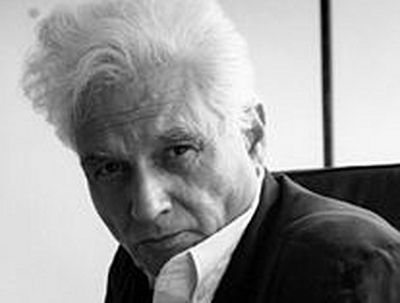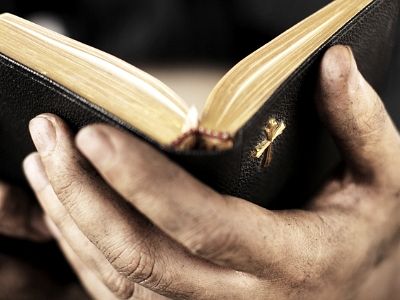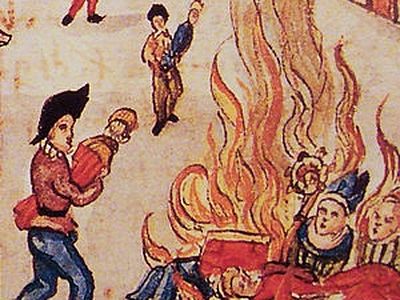I have recently—and on a few other occasions—written about the differences between the Protestant approach to authority and the Orthodox.
For Protestants, the final authority or rule is the Bible—a principle known as Sola Scriptura. And while some Protestants have written catechisms and other companion material to the scriptures themselves, these too are held in check by the proper interpretation of the Bible.
With regards to the latter, I have previously offered:
Even when Sola scriptura is given nuance to make room for creeds, confessions, and councils, the final arbiter is still a person’s interpretation of the Bible. While one might hold to a document such as the Westminster Confession of Faith, if there are doctrinal disagreements, the consistent Biblicist will come down in favor of a particular interpretation of the Bible over-and-against the Confession. This has led to some difficulties over the years for certain Protestant churches, but I believe that this nuance is—ultimately—pointless.
For example, one might confess a creed that states Jesus is a bunny rabbit. While this belief could theoretically be held by many, anyone can deny it as being contrary to the Bible (which it obviously is), rendering the creed both incorrect and unnecessary. It doesn’t really matter what creeds or confessions say, so long as the Bible is held to be the final authority.
In distinction from this viewpoint, I have explained that the Orthodox approach to authority is one that rests in Holy Tradition—the apostolic continuation of Christ that lives and breathes through the Body of Christ. By preserving and handing down this Tradition from one generation to the next (paradosis—the very meaning of “tradition”), the Church endures as the spotless and apostolic Bride of Christ, the “pillar and foundation of the truth” (1 Tim. 3:15). The gates of Hades—the gates of death, schism, and division—can never prevail against her (Matt. 16:18). The so-called “source” of authority in the Orthodox Church is God himself—not clergy, institutions, documents, or relics, but the very life of God by his Spirit. This is Holy Tradition.
And while we might point to the splintering of the Western church since the sixteenth century as evidence of the rotten fruit of Sola Scriptura, a faithful Protestant could just as easily turn such judgment back upon the Orthodox Church: What about the Old Ritualists, the Old Calendarists, the Armenians, Copts, and Ethiopians? What about the five different Patriarchs of Antioch, all claiming to be heirs to the apostolic throne of Peter and Paul? What about the Nestorians and other Non-Chalcedonians? And really, what about the (Roman and otherwise) Catholics, the several churches in communion with the Vatican and the Pope of Rome? How can anyone really claim that an adherence to Holy Tradition protects the Church against schism any better than Sola Scriptura?
But there is an important difference—a distinction so significant, it underlines or even defines the entirety of this issue. This question of authority is not epistemological or theoretical, first and foremost, but is rather ontological. It’s a question of the very nature or essence of the Church herself, and not any one particular set of doctrinal beliefs, creeds, or confessions.
The Church is the Church because she is the Church. Does that sound like a circular argument to you? Well of course it is, because it isn’t an argument—it’s a matter of life.
To be a member of the Body of Christ is not a doctrinal commitment or even choice, but is rather a Personal act—an act of being and becoming after the true image and likeness of Christ. It is a transfiguring participation—if we rightly make use of it—in the deifying life and grace of God’s kingdom. The scriptures are no doubt a central part of the life and authority of the Church, but we as the Church are the most significant sacred writ of all (2 Cor. 3:2), written by the Spirit of God (v. 3).
With regards to whether or not an adherence to Holy Tradition is superior to Sola Scriptura, we must emphatically reply in the affirmative. The aforementioned schisms are not true divisions of the Church (1 John 2:19), but are rather evidence the Church’s fidelity to Holy Tradition is working as it should.
A purpose of Tradition is to show forth this continuation of Christ and his apostles by defining the difference between orthodoxy and heterodoxy. When a “corrupt member” (using St. Vincent’s terminology) of the Body appears, Tradition has worked through the life of the Church to perform “surgery” on the Body, preserving her holy and without blemish. When a Patriarch of Constantinople evidenced himself as a heretic, he was condemned and removed from office by the proper, conciliar life of the Body. When an entire Patriarchate drifted into error, the Church acted with both righteousness and discernment to remove this contagion and supplant the “infected cells.”
The difference between these conciliar acts and the splintering within Protestantism is weighty. In the former, it is a Spirit-led process that takes decades—even centuries—to work out, being an action of the entire, canonical, and conciliar Church of Christ. In the latter, it’s the result of individuals (or groups of individuals) acting independently. It is democracy or anarchy rather than conciliarity.
Estimates of the number of Protestant bodies in the world today are often grossly exaggerated, but the reality is that at some point and for some, faithful Protestants, evenminor issues have resulted in not only lasting divisions but also prevented reunions. And all without the benefit of the long-established, conciliar, and traditional process as evidenced in the pages of the New Testament (Acts 15 and the first-century A.D. council of Jerusalem).
Without conciliarism, Holy Tradition, and the Ecumenical Councils, the only remaining options are either individualism or Papalism.
The preservation of Holy Tradition and the Body of Christ is ontological, not epistemological. It is a divine act of synergy that never fails us, despite our feeble, human participation.




